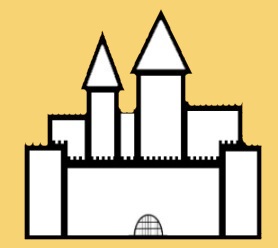

My parents were very young when I was born; my mother was just 22 and my dad only 21. My father was in the army and when it became clear my mother was pregnant she perforce went to live with her mother again, where her younger brothers and sisters were still living too. That’s where I was born, after a hasty marriage.
My grandmother and my father hated each other and when he came to visit us that was cause of many tensions. Because he was there only in the weekends (in the beginning even just every two weeks), everybody had more say about me than he did. That must have been very hard on him too. For me (in hindsight because I don’t have memories of it) it must have been very confusing and undoubtedly standing in the way of getting a good bond with my dad.
After two years they got their own apartment and we finally lived together as a family. After the difficult start because of a separated life and an unwilling mother (in-law) my parents did not have a lot of experience in raising a child. For instance they were very quick with slapping me when I did something naughty. When I started to duck when they made an unexpected move they stopped but I remained very insecure.
In addition I drank turpentine in a period of painting activities. I had to stay in the hospital for a while and in those days it was still very usual that parents were only allowed in for twice an hour a day. Even nowadays my mom is telling almost shivering how hard I was screaming when she had to leave again.
And as last influencing factor my sister was born. All beginner problems my parents had with me, they did not have with her. I can, in hindsight, imagine that I was very jealous of that.
All factors together made me into a scared and insecure child. My life was therefore arduous. At home I walked on egg shells, outside and at school I found no connection whatsoever. I was lonely, did not understand a whole lot about myself and others. I was a very good, obedient girl, but my puberty changed that. I became rebellious, angry about every little something and was unreachable. Life was bleak and hard, for myself but also for everyone around me.
Although later in life I got the diagnosis borderline, which is a pretty serious condition of course, I don’t think anyone in my youth knew it was that bad, myself least of all. For others it seemed a social problem and for me being unhappy was something that was a part of me, I had been it my whole life so I didn’t even wonder about that.
Only when I became an adult and it became clear that it wasn’t getting any better, on the contrary, I finally started therapy. The various therapies didn’t do much though. With every therapy I really felt I was working hard and came out better. But after a while it became clear each time that I hadn’t reached anything, every time I turned out to be standing in exactly the same spot as before.
In 1990 I started therapy with a psychiatrist. I owe a lot to this man. He was the first person who gave me the feeling he really saw me. He thought I was a very strong person and spoke about that in admiringly. Never before had someone called me strong and that gave me a whole new look upon myself.
After a few months his conclusion was that I had borderline. I did not know what it was and did not ask after that either. He did not think I would be helped by regular therapies anymore; I had become too good in talking and it was next to impossible to get through to me that way.
At that moment I decided to give up. Apparently I was hopeless and I had to learn to live with borderline. And the four years after that I really tried very hard and it looked like quite a lot. I married, had a child and got pregnant with the second one. But then, because of a clash at my job, I was thrown back into myself. I became hugely depressed and that for me was the final straw. This time I would go into therapy for me. It was “either this goes, whatever ’this’ was, or I go”. I did not want to go through life like this.
Via my old psychiatrist I came into contact with Mirjam Sigling, a psychomotor therapist. Often psychomotor therapy is part of a setting, but she worked independently.
When I was still working, I had by chance found a chapter from a book about attachment disorder and I recognized myself in that. Because of that I thought I really had an attachment disorder and not borderline. But my therapist told me that attachment disorder often is part of borderline.
So borderline was more than just an attachment disorder. And because nobody seemed to know exactly what, I started to think about this myself. In that time I had a friend with the same symptoms and with her and others I talked for many hours about what borderline could be.
So that’s how I worked on two sides. On the emotional side I worked at my feelings, my experiences, the way I went through life. At the same time my rational and analytical side worked at understanding borderline, discovering structures and patterns.
Because of this my emotional work in therapy got speeded up: I had a better understanding of what borderline was and what was needed to move on in the process. The help of Mirjam has been invaluable. She supported me in each and every way, our cooperation was intuitive and warm. This all eventually led to my healing.